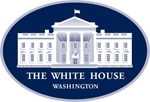
Steve Burkert, SMART TD general chairperson; and Doyle Turner, SMART TD vice president; led the fight for a fair and equitable agreement while withstanding the unreasonable demands of NJT. After two Presidential Emergency Boards and numerous negotiating sessions, the SMART TD negotiating team reached an agreement that was overwhelmingly ratified by our members on NJT.
SMART TD President John Previsich said: “I want to commend General Chairperson Steve Burkert, SMART TD Vice President Doyle Turner, Alternate Vice President Anthony Simon and all of the members of the negotiating team for their efforts in bringing this round of negotiations to a satisfactory conclusion. The negotiating team, led by GC Burkert, was instrumental in carrying the wishes of our NJT members to the negotiating table and it is through their efforts that we were able to reach an agreement that was ratified by an overwhelming majority vote. It’s been a long battle for the New Jersey Transit members and now they will receive the wages and benefits to which they are entitled. This is a tremendous victory for NJT SMART TD members, and for our union brothers and sisters across the country.”
General Chairperson Burkert said: “It’s been a long, drawn-out process and I’m thrilled for my members and their families that we were successful in reaching an agreement that provides for financial stability going forward, especially during this very tough political time. I want to express my appreciation to the entire membership for their solidarity and support through this very difficult round of negotiations.”
 SMART Transportation Division membership rejected a tentative agreement with New Jersey Transit from March that prevented a strike. BLET also rejected the agreement. Read more from
SMART Transportation Division membership rejected a tentative agreement with New Jersey Transit from March that prevented a strike. BLET also rejected the agreement. Read more from 
 After nearly five years of bargaining, Presidential Emergency Board (PEB) 249, formed in November, 2015 to resolve the contract dispute between the Rail Labor Coalition (Coalition) and New Jersey’s mammoth commuter carrier, New Jersey Transit (NJT), sided with unionized workers in recommending the main points of the Coalition’s proposal, including retroactive wage payments and an 18 percent increase in pay, compounded, over a six-year period.
After nearly five years of bargaining, Presidential Emergency Board (PEB) 249, formed in November, 2015 to resolve the contract dispute between the Rail Labor Coalition (Coalition) and New Jersey’s mammoth commuter carrier, New Jersey Transit (NJT), sided with unionized workers in recommending the main points of the Coalition’s proposal, including retroactive wage payments and an 18 percent increase in pay, compounded, over a six-year period.